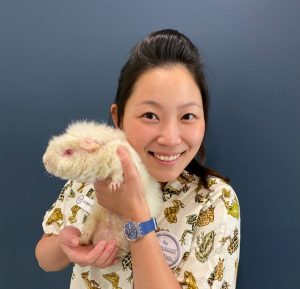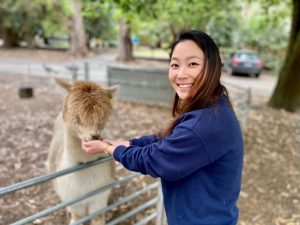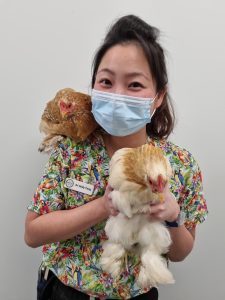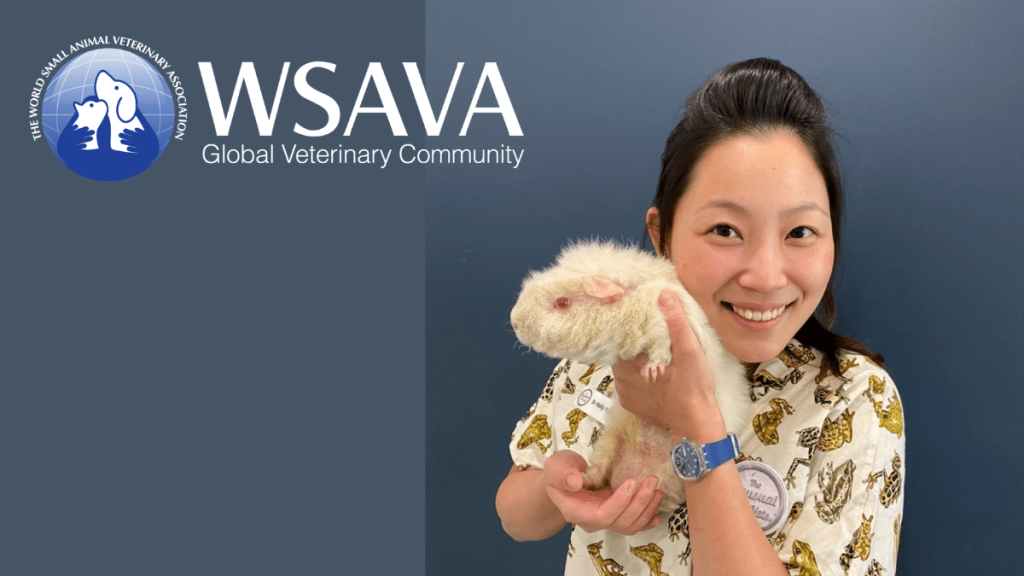Dr Yang has recently joined the WSAVA Professional Wellness Group (PWG), which is working to improve the well-being of veterinarians globally.
h4

Could you introduce yourself to WSAVA members?
Hello WSAVA members! My name is Holly and I’m fairly new to WSAVA. I’m a recent graduate, working as a companion exotics vet (all non-cat/dog pets). I was born in South Korea and emigrated to Sydney, Australia. I then studied in the US and came back to Australia to complete my veterinary degree. I’m currently living in sunny Perth, Western Australia.
What do you enjoy about your role and what’s the most unusual animal you have treated?
I’m working full time as an exotics vet at the moment. I love my role because I have an amazing supportive team. I also love my job because I’m learning something new every single day, thanks to the variety of species we get to see. I think the most unusual patient I’ve seen would have to be a hermit crab. Axolotls fascinate me always!
 You have a degree in psychology and already a strong interest in veterinary wellness. What sparked your interest in this area?
You have a degree in psychology and already a strong interest in veterinary wellness. What sparked your interest in this area?
I studied psychology in California because I was immediately drawn to it during an introductory class in college and I wanted to do something to help people. Studying psychology just made sense to me. Veterinary medicine was the opposite!
I think my interest in veterinary wellness developed steadily throughout vet school. Working as a vet nurse during my degree helped me to observe life in a veterinary clinic and understand how important wellness is for the whole team to thrive.
You’ve recently joined the WSAVA Professional Wellness Group. Why did you want to do this?
I decided to apply for the WSAVA PWG because I’m interested in working with like-minded individuals to improve the future of veterinary mental health. We have had our first online meeting with the group and I’m very excited for what’s to come!
What is your take on the state of veterinary wellness currently?
I believe the current state of veterinary wellness is better than say 10-20 years ago. We’re certainly more aware of it, open to it, and I think a lot of us want to improve it. We have employers who see staff mental health as a priority and actively seek ways to make it better. In saying this, like most people in the profession, I did lose a colleague to suicide just six months after our graduation. For my research project in vet school, I studied the perceived stress on vet students and found that they suffered higher levels of stress than human medical students, vets, and doctors and, of course, the general public. I do believe that we need to start our wellness training earlier in our careers to better equip us for the future.
 How do you hope to make a difference through your involvement with the PWG?
How do you hope to make a difference through your involvement with the PWG?
I’m certainly a baby vet coming into the PWG compared to the esteemed members already well-known in the field of veterinary wellness. But I’m hoping that I can contribute as a relatively new graduate working in private practice and help us to meet some of the challenges we may face as a group going into the world of practice.
Tell us something about you that might surprise us!
I used to be a bus driver in California during my psychology degree!

